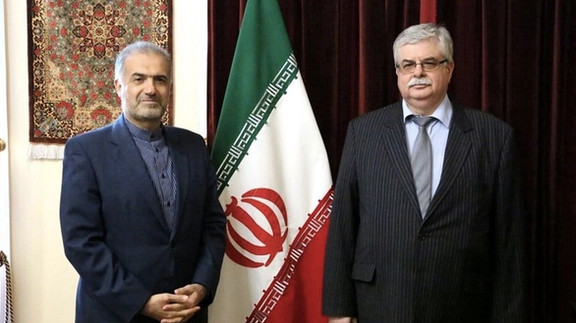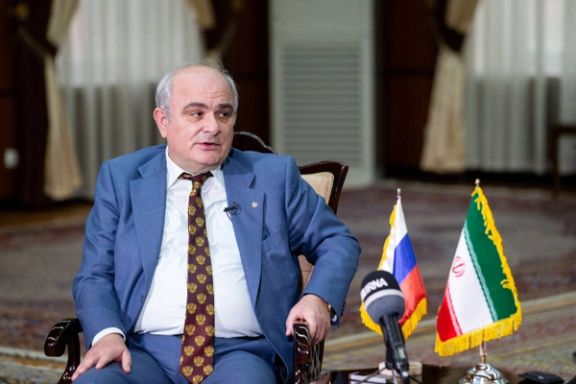Moscow Replaces Its Controversial Ambassador In Tehran

Iran's envoy in Moscow announced Tuesday that he met with Alexey Dedov, the new Russian ambassador to Tehran, who is replacing the former controversial envoy.

Iran's envoy in Moscow announced Tuesday that he met with Alexey Dedov, the new Russian ambassador to Tehran, who is replacing the former controversial envoy.
“I met with Alexey Dedov today. He will soon start working as Russia's new ambassador in Iran. We both stressed that relations between Iran and Russia currently stand at one of the best eras of their history,” Kazem Jalali tweeted. Jalali also wished success for Dedov and thanked the outgoing envoy Levan Dzhagaryan's (Jagarian) “efforts”.
The 61-year-old Alexey Yurievich Dedov began his career in the Soviet foreign ministry and served as the deputy head of mission of the Russian embassy in Iran from 2004 until 2009. He was posted to Islamabad, Pakistan, as ambassador in 2013. In February 2014 Dedov was promoted to ambassador extraordinary and plenipotentiary and until 2019 remained in Pakistan where he often wrote articles for Pakistan’s The Express Tribune.
The incumbent Dzhagaryan has served in Tehran since October 2011. In the past few months. Dzhagaryan has angered Iranian media and social media users on several occasions and made headlines for all the wrong reasons.
It is not clear if he was replaced for this reason or for Russia’s growing ties with Iran after the Ukraine invasion.
Anti-Russian sentiments have been quite often in Iran in the past few months, particularly since early March when Russia demanded exemption from the United States regarding Ukraine sanctions in all its dealings with Iran during talks to restore the 2015 nuclear deal (JCPOA). Iranian media and the public expressed outrage at Russia’s demand, seeing it as a hurdle in the way of concluding a deal that would lift US sanctions on Iran.

Many Iranians have a historical bias and distrust towards Russia for interferences in Iran's domestic affairs in Tsarist times, wars fought between the two countries, and later, the continuation of the same policies by the Soviets.
Despite the public’s prevalent negative view, an unprecedented host of high-ranking Iranian political and military officials attended the Russian national day ceremony at the embassy in Tehran on June 12 this year and lined up to shake hands with the controversial ambassador.
High-ranking officials traditionally keep away from most national day ceremonies at foreign missions in Tehran where alcohol is served, and women do not have to wear the hijab.
Dzhagaryan became famous among Iranian social media users in February when the Russian embassy posted a photo of him on Twitter laying a wreath at the foot of a monument to Alexander Griboyedov inside the embassy compound on Diplomats Day.
Social-media users expressed outrage because of Griboyedov’s role in a 1828 treaty, ending the Russo-Persian War (1826-1828) forcing Iran to cede the south Caucasus to the Russian Empire. Griboyedov was killed by a mob in Tehran in 1829 after being appointed Russia's ambassador.
Following Russia’s invasion of Ukraine, Dzhagaryan instructed Iranian reporters in Tehran on how to cover the event and not to use the word ‘war,’ instead to call it a ‘special military operation.’
The Russian ambassador also annoyed Iranian officials ahead of the Russian leader Vladimir Putin’s visit to Iran in July when he said in aninterview with Shargh newspaper that "hijab and the lack of alcoholic drinks in Iran prevent Russian tourists from coming to Iran.” This was seen as criticism of the Islamic Republic's underlying Islamic values.
Dzhagaryan also said Iran owed Russia hundreds of millions of euros and was not paying its debt.